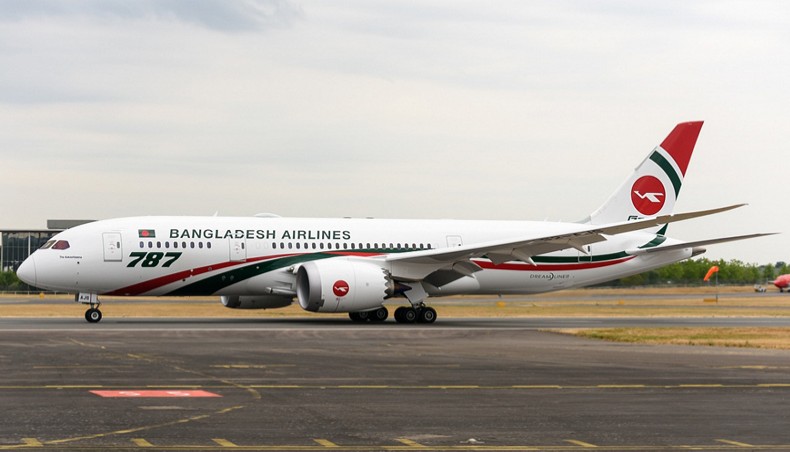- Messages
- 3,833
- Likes
- 2,049
Biman to fly all-women flight
Muktadir Rashid | Published: 00:10, Mar 08,2024
Biman Bangladesh Airlines is preparing for an all-women operated flight to Saudi city Dammam from Dhaka today to mark International Women’s Day.
The Biman officials said that their flight BG-349 would be operated by two female pilots and their on board service would be given by female cabin crew while the ground handling service would be given by female colleagues.
Captain Aliya Mannan would fly the aircraft Boeing 787, officials said.
First officer Fariha Tabassum, who will be the co-pilot on the flight, said that this would be a rare type of flight when all cockpit and cabin crew were all female.
Biman’s first female general manager for public relations, Tahera Khondoker, said that over 13 per cent of their total 4,038 permanent and contractual employees were female and serving currently in all departments with equal rights and benefits.
Among them, 345 women are serving as female cabin crew.
Tahera said that 15 female pilots were also serving as captains or first officers, amounting to 10 per cent of total pilots at the national flag carrier.
One of the female pilots said that it was inspiring when people celebrated the contribution of female pilots or professionals, but many hardships and discrimination went untold.
She said that many airlines were still not hiring female pilots when the global average of female pilots was six per cent.
The Sydney-based Centre for Aviation stated that women pilots’ share of United States airline pilot licences had grown over 20 years, rising from 3.3 per cent in 2002 to 4.9 per cent in 2023.
German company Statista Research Department stated in November 2023 that India was the leading country in terms of female pilots in the world in 2021, with roughly 12.4 per cent of Indian pilots being female.
During the period, only 4.7 per cent of pilots in the United Kingdom were female.
The number of female pilots is still low in Bangladesh.
The largest private airline, US-Bangla airlines, initially tried to promote Bangladeshi female pilots, but three of them left the airlines while one died in a crash in Nepal.
‘We have two female pilots of foreign nationality,’ said a top executive of the airline.
The US-Bangla recruited one female Bangladesh trainee who is now in the United States for flying training, the executive added.
Likewise, Novoair has only two first officers, while Air Astra has only one first officer, Shajidina Sultana Sony.
Kaniz Fatema Roksana was the first Bangladeshi female commercial pilot.








